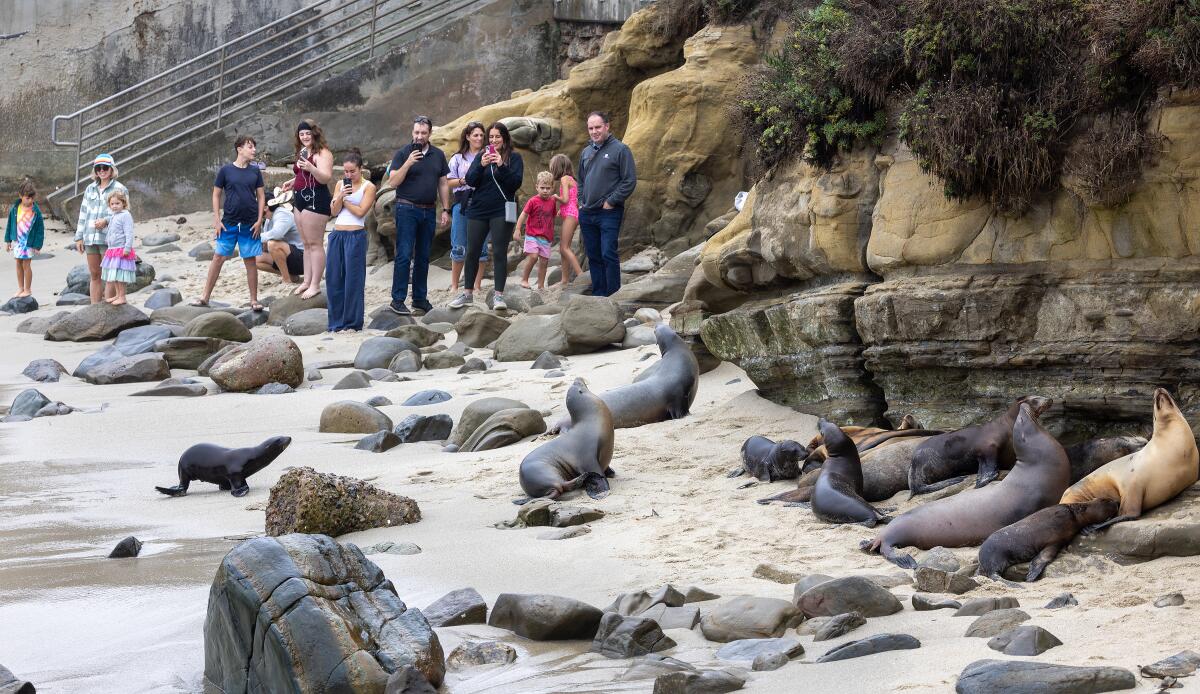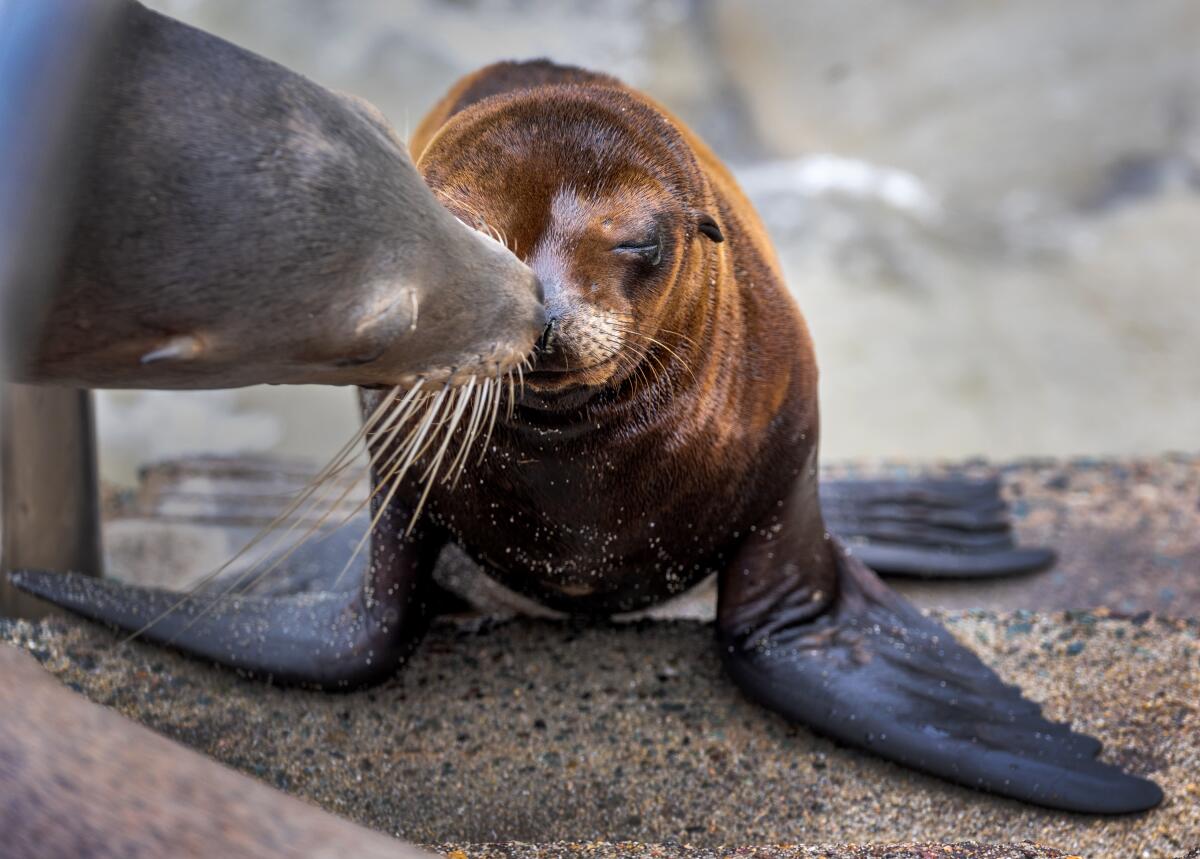 |
| October 19, 2024 |
By Hunter Clauss Good morning, and welcome to the Essential California newsletter. Here’s what you need to know to start your weekend:
Sea lions — and their stench — rule La Jolla’s coastlineA battle is underway in La Jolla, after sea lions conquered the town’s beaches, claiming them as their own breeding grounds. The phenomenon has attracted busloads of tourists who take pictures of cuddly-looking sea lions and post them on social media, captivating a large online audience that has rushed to the defense of the mammals. But nearby residents are over it. The sea lions are constantly pooping, and the smell can drift blocks away. A group called Citizens for Odor Nuisance Abatement unsuccessfully tried suing local officials into doing something about the smell in 2013, arguing local businesses were suffering. What’s happening at La Jolla is significant for several reasons, as my colleague Jack Flemming explains in this fascinating deep dive that, yes, includes plenty of photos of the sea lions. Here are some key takeaways from Jack’s reporting.  Visitors view sea lions at the La Jolla Cove this month. (Allen J. Schaben / Los Angeles Times) Sex, food, and climate change are driving the sea lions’ coastline conquest The sea lion population has exploded, rising from about 90,000 in the 1970s to around 250,000 today. That rebound is largely thanks to a federal law passed in 1972 that made it illegal to hunt and kill sea lions and other marine animals. With their increasing numbers, sea lions are running out of space at their longtime home in the uninhabited Channel Islands, where most sea lions breed. So the mammals have branched out to colonies on the coastline, moving into areas close to food and away from humans. And that’s what makes the situation at La Jolla strange — there are people seemingly everywhere, taking selfies with the sea lions and documenting their every move, including farts. Many sea lion pups have died because of human interference, such as separating pups when their mothers are getting food by crowding around them, forming unintentional blockades, Jack reports. So why La Jolla? The move might be due to El Niño events and heat waves that have warmed waters and killed off fish that sea lions prey upon, Sharon Melin, the lead sea lion biologist at the National Oceanic and Atmospheric Administration, told Jack. “As habitats change and the climate changes, sea lions will be moving,” Melin said. “They’ll be looking for places to rear their young, and they’ll show up in places we’ve never thought about.”  An adult sea lion checks on a young one as they rest on the stairs at La Jolla Cove. (Allen J. Schaben / Los Angeles Times) Sea lions may be swimming to other beach towns, and communities need to be prepared “Experts say La Jolla is just the first beachhead in a larger campaign to claim, or maybe reclaim, territory,” Jack reports. “As overcrowding and water temperatures disrupt the sea lion population, they say new colonies will form up and down the coast — whether locals want them there or not.” Communities have some playbooks for dealing with sea lions. One can be found in San Francisco, where boats were removed from Pier 39 to accommodate sea lions after a group popped up in 1989. If locals don’t want sea lions on their coastline, they should act quickly. Legal methods for deterring the mammals include fences, rails, lights and noisemakers. But for La Jolla, it may be too late. Once a breeding ground is established, it’s hard to stop, Jack reports. The week’s biggest stories Vice President Kamala Harris and Second Gentleman Doug Emhoff walk through their L.A. neighborhood last year. (Christina House / Los Angeles Times) A look at Kamala Harris’ roots in California
A new clergy abuse settlement pushes the total payouts from the L.A. Catholic Church to more than $1.5 billion
Gas prices will likely go up with the closure of the Phillips 66 refinery complex, analysts say
Baby food pouches have never been more popular with kids. That might not be a good thing
More big stories
|
No comments:
Post a Comment